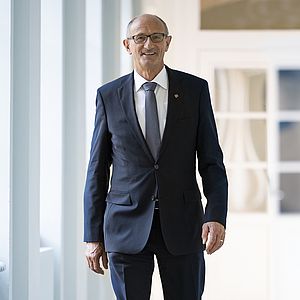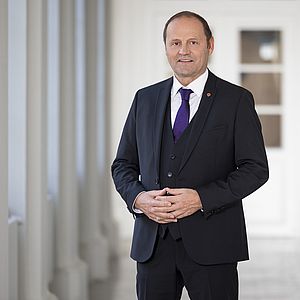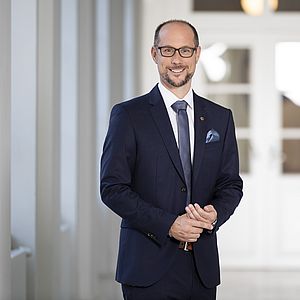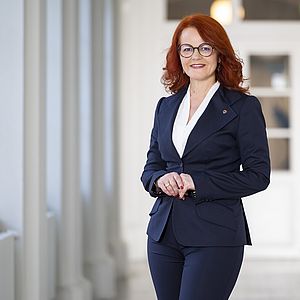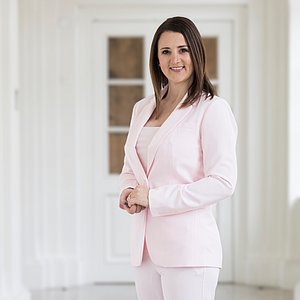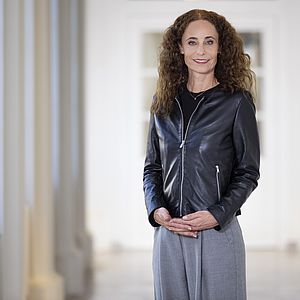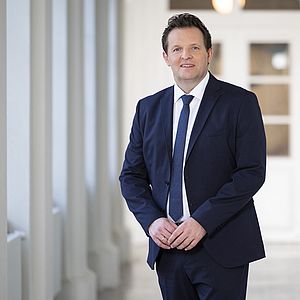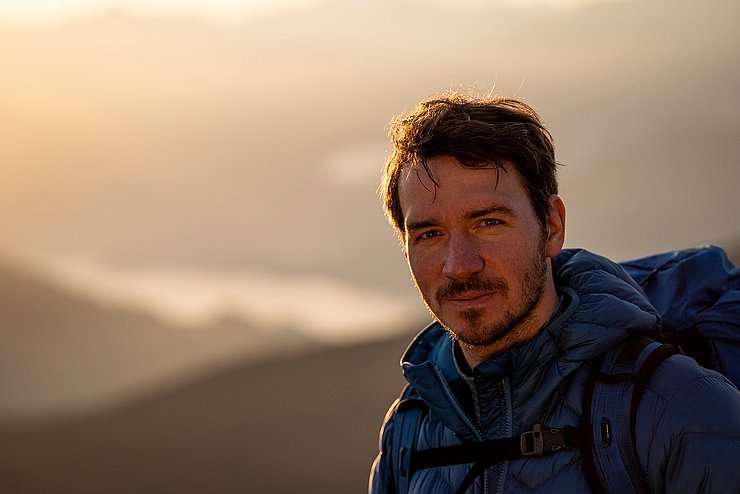Programm
Dienstag, 25.11.2025 - Übersicht
| 10:30 Uhr | Beginn Anmeldung |
| 12:00 Uhr | Generalversammlung (nur für Mitglieder) |
| 14:00 Uhr | Eröffnung Networking Village |
| 15:00 Uhr | Plenum I: 10 Jahre EUSALP - Rückblick, Ausblick und Übergabe |
| 16:15 Uhr | Kaffeepause: Networking Village |
| 17:00 Uhr | Plenum II: Die Zukunft gemeinsam gestalten - Der Alpenraum 2035 |
| 19:15 Uhr | Landesüblicher Empfang |
Mittwoch, 26.11.2025 - Übersicht
| 08:30 Uhr | Eröffnung und Kaffee |
| 09:00 Uhr | Workshop Session I, je sechs Workshops parallel |
| 10:30 Uhr | Kaffeepause |
| 11:15 Uhr | Workshop Session II, je sechs Workshops parallel |
| 13:00 Uhr | Mittagsbuffet und Ausklang |
Plenum I: 10 Jahre EUSALP - Rückblick, Ausblick und Übergabe
Dienstag, 25.11.2025, 15:00 - 16:15 Uhr
Eröffnung des Jahresforums, politische Bilanz der Co-Präsidentschaft und offizieller Start in ein neues Kapitel mit der Übergabe der Präsidentschaft an den Freistaat Bayern.
Was Sie erwartet:
- Offizieller Auftakt des Jahresforums durch Landeshauptmann Anton Mattle
- Interviewrunde: Rückblick auf die letzten 10 Jahre EUSALP
- Highlights und Ergebnisse der Co-Präsidentschaft Österreichs und Liechtensteins
- Feierliche Übergabe der Präsidentschaft an den Freistaat Bayern
Moderation: Anna Krepper & Széchényi Dénes
Simultane Übersetzung: DE, EN, IT, FR, SL
Plenum II: Zukunft gemeinsam gestalten- Der Alpenraum 2035
Dienstag, 25.11.2025, 17:00 - 19:00 Uhr
Ein inspirierender Ausblick in die nächste Dekade
- Keynote von Felix Neureuther, Skiweltmeister und UN-Botschafter
- Talkshow mit politischen Vertreter:innen und der Jugend
- Pitch Your Project Preisverleihung
Moderation: Anna Krepper & Széchényi Dénes
Simultane Übersetzung: DE, EN, IT, FR, SL
Keynote Felix Neureuther
Wie sieht der Alpenraum im Jahr 2035 aus & was können wir heute dafür tun?
Felix Neureuther, Skiweltmeister und UN-Botschafter für saubere Berge und Gletscher, nimmt uns in seiner Keynote mit auf eine persönliche Reise: von Kindheitserinnerungen und Skikarriere in den Bergen über die Veränderungen durch den Klimawandel bis hin zu konkreten Ideen für eine nachhaltige Zukunft.
Im Fokus stehen die großen Transformationsprozesse im Alpenraum und ihre Bedeutung für die Lebensqualität und ihre Auswirkungen auf die nächsten Generationen.
Mit Leidenschaft, Erfahrung und klaren Botschaften zeigt Felix Neureuther, warum gemeinsames Handeln entscheidend ist, um die Alpen als einzigartigen Lebens- und Naturraum zu bewahren.
Ein inspirierender Ausblick und ein Aufruf, die Zukunft gemeinsam zu gestalten.
Workshop Session I
Mittwoch, 26.11.2025, 09:00 - 10:30 Uhr
Workshop #1 Shaping the Future: Building a Circular Economy Roadmap for the Alpine Region
Contributor(s): Action Group 2, Alpine Space Programme
Inputs from: Massimo Lapolla (AG2); Christina Bauer (Alpine Space Programme); Elodie Laleous (Techtera); Sebastian Beclin (CIRDD); Darja Kulkovic (ITC Murska Sobota)
Moderation: Sylvain Guetaz (AG2)
The workshop will foster a multi-level dialogue on circular economy as a driver for sustainable transformation in the Alpine Region. The focus will be on three key sectors: textiles, agrifood, and the building sector, with inputs from flagship projects such as BAUHALPS, AlpTextyle and ASTER. The event will also serve as the launchpad for a new study commissioned by Action Group 2, in the framework of the Cross Cutting Priority on Circular Economy, aimed at developing a roadmap for the Alpine macro-region.
Building on exchanges held throughout the current Work Plans programming period (2023-2025), the workshop will showcase inspiring examples from across the Alps – including funding schemes, new digitalization processes, procurement models, training initiatives and regulatory approaches. Contributions from the Alpine Space Program and key regional experts will enrich the debate. The workshop aims to engage a broad audience – from public authorities and research to business, civil society and youth – to spark new policies, projects and shared action in support of a circular Alpine future.
Workshop #2 Fast-tracking the Energy Transition for a Carbon-neutral Alpine Region: Policy Recommendations from Work Plans 2023-2025
Contibutor(s): Action Group 2, Action Group 4 and Action Group 9
Inputs from: Etienne Vienot (AURA-EE); Ulrich Santa (Director, Energy Agency South Tyrol – CasaClima); Norbert Sedlacek (Herry Consult); Benjamin Auer (Energy Agency South Tyrol – CasaClima)
Moderation: Helen Lückge (AG4)
Given the sensitive mountainous environment which is more prone to climate-related events, the necessity to accelerate measures towards decarbonisation is particularly apparent in an Alpine context. Stepping up measures towards higher energy efficiency will not only lead to lower CO2 emissions but can also tackle the energy crisis.
This workshop, based on the activities of AG2, AG4 and AG9 in the cross-cutting priority "Energy transition" from 2022 to 2025 will deliver some key results and discuss the following steps. A special focus will be on the transport sector which accounts for 30% of overall energy consumption and around a quarter of greenhouse gas emissions in the EU.
Workshop #3 Ecological connectivity in the Alpine region: strategic tools and pathways for implementation
Contributor(s): Action Group 7, Action Group 6
Inputs from: Florian Danzinger (Environment Agency Austria); Thomas Schuh (ÖBB-Infrastruktur AG); Elke Hahn (Federal Ministry of Innovation, Mobility and Infrastructure ); Gundi Habenicht (Land Salzburg); Guido Plassmann (ALPARC); Oriana Coronad (ALPARC)
Moderation: Miro Kristan (AG7)
The workshop will provide an overview of the work developed on ecological connectivity in the Alps. The aim is to emphasize the importance of integrating ecological connectivity into spatial planning as a foundation for achieving the COP15 30x30 goal and other major macro regional and EU biodiversity goals (NRL, no net land take, among others) and the importance of developing strategic partnerships to facilitate implementation.
Through concrete implementation examples, the main challenges faced on different scales, and the success factors are illustrated. The session has the goal of inspiring potential actions that could be pursued and supported by AG6, AG7 and the Alpine Convention.
Workshop #4 Brokering Spaces: Optimising local Alpine land use
Contributor(s): Action Group 6
Inputs from: Alenka Smerkolj (Secretary General of the Alpine Convention); Robert Ortner (Land Tirol); Manuela Brückner (SIR); Luca Daprà (BASIS Vinschgau Venosta); Marion Ebster-Kreuzer (CIPRA International); Christian Steiner (European Land Soil Alliance)
The workshop shows the role of spatial planning in the conservation of land in the EUSALP area, its conflicts and political dimension. Furthermore, it breaks down the challenges to the local level shown by the two projects implemented in the whole EUSALP area (BrokeringSpaces and Ground:breaking), stressing the importance of local commitment to achieve the overarching goals of the EUSALP and EU strategy regarding soil, land use, climate change and biodiversity.
The workshop focuses on the European goal of reducing land take down to zero net by 2050, especially at the local level, where the construction industry and the circular economy play a crucial role. Since the construction industry is responsible for the majority of CO2, waste, and land consumption, it is therefore important to get a holistic view of the challenge and at the same time focus on local pathways to solutions, because the local level is crucial in the implementation (or objection) of the overarching regional, national, and European goals in land take.
Workshop #5 Embedding in Practice: Aligning EUSALP Priorities and EU Funding Instruments
Contributor(s): EUSALP Co-Presidency
Imputs from: Jörg Mirtl (Federal Ministry for Labour, Social Affairs, Health, Care and Consumer Protection); Miguel Avila Albez (European Commission DG Regio); Serena Liva (Interreg Italy/Switzerland)
Macro-regional strategies such as EUSALP do not have their own financial resources. The process of embedding – collaboration with funding programmes to mobilize resources for the strategy’s implementation – is therefore essential. At the same time, the process of reprogramming EU programmes is imminent. This workshop aims to identify important steps and measures for better linking programs with EUSALP themes and funding programmes through a dialogue between Action Groups and funding programmes in the Alpine region.
Workshop #6 Bringing the new mission-oriented approach to work (3h)
Contributor(s): EUSALP Co-Presidency, EUSALP Secretariat
Imputs from: Michael Roth (Federal Ministry of Agriculture and Forestry, Climate and Environmental Protection, Regions and Water Management); Marc Pattinson (G.A.C.); Sascha Ruhland (Austrian National Contact Point, Horizon Europe)
Moderation: Marc Pattinson and Laura Varisco (G.A.C.)
The revised EUSALP Action Plan introduces missions as a new policy instrument to foster more effective and integrated cooperation. While missions have proven powerful in innovation policy (e.g. Horizon Europe missions), their application to spatial development raises open questions:
- How can missions capture Alpine-wide territorial challenges such as climate resilience, mobility, or demographic change?
- How to ensure missions are ambitious but realistic, politically visible, and relevant for citizens?
This workshop will therefore explore how EUSALP missions can be concretely designed and implemented, and how they can support transformative policies for increasingly complex territorial challenges.
Workshop Session II
Mittwoch, 26.11.2025, 11:15 - 12:45 Uhr
Workshop #6 Bringing the new mission-oriented approach to work (3h)
Contributor(s): EUSALP Co-Presidency, EUSALP Secretariat
Imputs from: Michael Roth (Federal Ministry of Agriculture and Forestry, Climate and Environmental Protection, Regions and Water Management); Marc Pattinson (G.A.C.); Sascha Ruhland (Austrian National Contact Point, Horizon Europe)
Moderation: Marc Pattinson and Laura Varisco (G.A.C.)
The revised EUSALP Action Plan introduces missions as a new policy instrument to foster more effective and integrated cooperation. While missions have proven powerful in innovation policy (e.g. Horizon Europe missions), their application to spatial development raises open questions:
- How can missions capture Alpine-wide territorial challenges such as climate resilience, mobility, or demographic change?
- How to ensure missions are ambitious but realistic, politically visible, and relevant for citizens?
This workshop will therefore explore how EUSALP missions can be concretely designed and implemented, and how they can support transformative policies for increasingly complex territorial challenges.
Workshop #7 Promoting the Digitalisation of the Alps
Contributor(s): Action Group 5, Action Group 2, Action Group 3 and Action Group 9
Imput from: Gianluca Lentini (Poliedra); Sylvain Guetaz (AG2); Gianmarco Piola (Piemonte Innova); Christian Micheloni (University of Udine); Natalia Magnani (University of Trento); Etienne Vienot (AURA-EE & AG9); EUSALP Youth Council
Moderation: Carlo Vigna (AG5)
How can digital innovation empower Alpine communities? This interactive workshop will explore key outcomes of EUSALP’s Cross-Cutting Priority 1 (CCP1), bringing together voices from the SmartCommUnity project, thematic actions groups (AGs), and youth perspectives. Participants will travel through five pillars—from smart communities and AI-driven local economies to data spaces, remote work, and energy data — each introduced through brief presentations, real-life examples, and lively Q&A moments. Interactive polls and youth reflections will spark dialogue and invite participants to share ideas, needs, and challenges. The workshop offers a space to connect digital strategies to real Alpine issues and co-design synergies for future action.
Workshop #8 Enhancing Alpine Climate Change Adaptation through Cross-Project Policy Recommendations and Tools
Contributor(s): Action Group 8
Imputs from: Andrea Moro (iiSBE Italia); Rebecca Chizzola (Agency for Civil Protection, Province of Bolzano); Fred Berger (INRAE); Fabio Carnelli (Eurac research & AG8); Wolfgang Lexer (Austrian Environmental Agency); Rogelio Bonilla (AURA-EE);
Elena Bazzan (iiSBE Italia)Moderation: Fabio Carnelli and Rogelio Bonilla
AG8, together with the INTERREG projects ADAPTNOW, X-Risk-CC, MOSAIC, and Forest EcoValue, are proposing a joint workshop to strengthen the adaptation capacities of regional and local authorities, taking into account their multi-level governance contexts, in the Alpine region. The aim of the workshop is to understand and highlight common action fields through policy recommendations and exemplary pilot initiatives to advance climate change adaptation at the Alpine scale.
Our proposed workshop will use the transnational policy recommendations on climate change adaptation and risk management, which we developed in our projects and in the AG8 Work plan, as a unifying thread to showcase the concrete results, lessons learned, and further action demands by AG8 and the INTERREG projects ADAPTNOW, X-RISK-CC, MOSAIC, and Forest EcoValue.
We will present effective and scalable pilot actions developed by our projects and link them to the policy proposals developed within AG8 and by our associated projects, to illustrate the current and future implementation of policies in real-world scenarios.
We will then facilitate a panel discussion to discuss the role of EUSALP and transnational cooperation for scaling up local solutions and enhance policy preparedness for managing climate risks. The panel will bring together experts, policymakers, practitioners, EU Commission staff, and other key actors to share their perspectives on the advancements achieved through our projects and discuss future implications.
Workshop #9 Space matters - the territorial dimension of EUSALP
Contributor(s): EUSALP Co-Presidency
The challenges of the Alpine region demand differentiation in terms of solutions: mountainous areas or lowlands, cities and towns or rural areas, accessible and transition corridors or remote areas – the strategic themes of EUSALP and its Action Plan need to be set in a context of special framework conditions and territorial impacts in order to be dealt with effectively. During the Austria-Liechtenstein Co-Presidency, the territorial dimension of EUSALP is discussed for the first time in a State of the Territory Report. At the same time, the Alpine Convention is working on a spatial development perspective for the Alps to lay the foundation for a further process of spatial development cooperation in the Alpine region. This workshop will reflect on the results of the State of the Territory Report and its impact on the work of the EUSALP Action Groups as well as on the development of an Alpine spatial development perspective.This workshop will reflect on the results of the State of the Territory Report and its impact on the work of the EUSALP Action Groups as well as on the development of an Alpine spatial development perspective.
Workshop #10 Shape It Forward: The Alpine Space You Want. From visions to gamechangers
Contributor(s): Alpine Space Programme
How can today’s ideas shape tomorrow’s Alpine cooperation? This interactive workshop invites stakeholders to shape the Interreg Alpine Space programme post 2027. Through work in small-groups and creative prototyping, participants will identify game-changing approaches, governance models, and project formats in an interactive and inclusive way. The session will generate actionable ideas for a more impactful, inclusive, and forward-looking cooperation programme.
Workshop #11 Fit for Cooperation: challenges and opportunities of cross border cooperation with a bottom-up approach
Contributor(s): Euregio
Fit4Co CBO – a Euregio success project that is already being completed for the second time – has shown how diverse and enriching cooperation between public administrations, municipalities and social partners can be. Through bottom-up project development, administrations at different levels were accompanied through their project planning right up to submission to various EU funding bodies.

